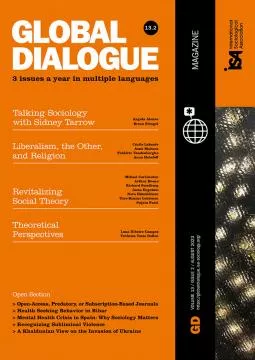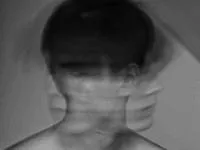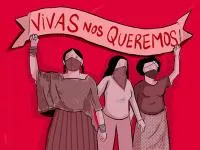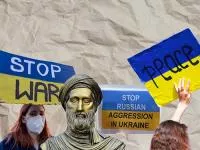GD 13.2 - August 2023

Global Dialogue is available in multiple languages!
Select the language to download the issue.
Editors:
Breno Bringel.
Assistant Editors:
Vitória Gonzalez, Carolina Vestena.
Associate Editor:
Christopher Evans.
Managing Editors:
Lola Busuttil, August Bagà.
Consultants:
Michael Burawoy, Brigitte Aulenbacher, Klaus Dörre.
Media Consultant:
Juan Lejárraga.
Consulting Editors:
Sari Hanafi, Geoffrey Pleyers, Filomin Gutierrez, Eloísa Martín, Sawako Shirahase, Izabela Barlinska, Tova Benski, Chih-Jou Jay Chen, Jan Fritz, Koichi Hasegawa, Hiroshi Ishida, Grace Khunou, Allison Loconto, Susan McDaniel, Elina Oinas, Laura Oso Casas, Bandana Purkayastha, Rhoda Reddock, Mounir Saidani, Ayse Saktanber, Celi Scalon, Nazanin Shahrokni.
REGIONAL EDITORS
Arab World: (Tunisia) Mounir Saidani, Fatima Radhouani, (Lebanon) Sari Hanafi.
Argentina: Magdalena Lemus, Juan Parcio, Dante Marchissio.
Bangladesh: Habibul Khondker, Khairul Chowdhury, Bijoy Krishna Banik, Abdur Rashid, Sarker Sohel Rana, Md. Shahidul Islam, Helal Uddin, Yasmin Sultana, Saleh Al Mamun, Ekramul Kabir Rana, Farheen Akter Bhuian, Khadiza Khatun, Aysha Siddique Humaira, Arifur Rahaman, Istiaq Nur Muhit, Md. Shahin Aktar, Suraiya Akhter, Alamgir Kabir, Taslima Nasrin.
Brazil: Fabrício Maciel, Andreza Galli, Ricardo Visser, José Guirado Neto, Jéssica Mazzini Mendes.
France/Spain: Lola Busuttil.
India: Rashmi Jain, Rakesh Rana, Manish Yadav.
Iran: Reyhaneh Javadi, Niayesh Dolati, Sayyed Muhamad Mutallebi, Elham Shushtarizade.
Kazakhstan: Aigul Zabirova, Bayan Smagambet, Adil Rodionov, Almash Tlespayeva, Kuanysh Tel, Almagul Mussina, Aknur Imankul, Madiyar Aldiyarov.
Poland: Aleksandra Biernacka, Anna Turner, Joanna Bednarek, Marta Błaszczyńska, Urszula Jarecka.
Romania: Raluca Popescu, Raisa-Gabriela Zamfirescu, Bianca Mihăilă, Diana Moga, Luiza Nistor, Maria Vlăsceanu.
Russia: Elena Zdravomyslova, Daria Kholodova.
Taiwan: Wan-Ju Lee, Tao-Yung Lu, Yu-Wen Liao, Yi-Shuo Huang, Chien-Ying Chien, Zhi Hao Kerk, Mark Yi-wei Lai, Yun-Jou Lin, Yun-Hsuan Chou.
Turkey: Gül Çorbacıoğlu, Irmak Evren.
GD 13.2 - August 2023
Editorial
I hope you enjoy this issue of Global Dialogue, the second under my editorship with Carolina Vestena and Vitória Gonzalez. During my first few months as editor, I have initiated a wide-ranging discussion on the future of the magazine to reflect together on the changes needed to consolidate and expand it. New developments will be introduced from the first issue of 2024 and I encourage you to share your ideas and suggestions with us.
This issue begins with an interview with leading scholar Sidney Tarrow, led by Angela Alonso and myself. We talk about the many facets and challenges of the relationship between social movements and political parties, such as, for example, how to think about them relationally, what the heuristic potential of the concept of movement parties is, how recent political events relate to new academic research agendas, or what some of the key challenges are for continuing to promote a global research agenda on the topic.
The first symposium, entitled “Liberalism, the Other, and Religion”, brings together various texts prepared for one of the presidential sessions of the XX ISA World Congress of Sociology in Melbourne. Cécile Laborde opens the debate with a creative discussion on the relationship between the state and religion and, more specifically, between secularism and liberal legitimacy. Meanwhile, prominent Arab intellectual Azmi Bishara analyses the variations of liberalism in academic debate and its political uses. In a more internal approach to the sociological debate, Frédéric Vandenberghe suggests rethinking sociology as a continuity of moral philosophy, which implies examining the political and moral presuppositions of the discipline, including its repertoire of ‘liberal communitarianism’. Finally, Anna Halafoff discusses some trends of the conservative peaks and religious nationalism in the context of a confrontation between cosmopolitanism and anti-cosmopolitanism.
The second symposium, organised by Mikael Carleheden and Arthur Bueno, is entitled “Revitalising Social Theory”. In addition to a brief introduction to the topic, it contains six articles that deal with how we can revitalize our way of theorising social phenomena. While Richard Swedberg and Anna Engstam make a call for creativity, Mikael Carleheden defends theoretical pluralism. The relationship between theory and empiricism/practice then appears in different ways in the articles signed by Nora Hämäläinen and Turo-Kimmo Lehtonen, and by Arthur Bueno. In the first case, the crisis of theory as ‘grand theory’ is discussed, and proposals for theorising lived practice, or fieldwork in philosophy, are put forward. In the second, the paradox of conceptions of practice in contemporary social theory is discussed. This set of articles concludes with a piece by Sujata Patel discussing the growth of anti-colonial thinking in social theory and its contributions to global sociology.
In the “Theoretical Perspectives” section, we open space for a topic of growing concern: What are the main contributions of women to classical social theory? What are some of the main contemporary challenges to thinking beyond the canon? By answering these questions, Luna Ribeiro Campos and Verônica Toste Daflon contribute not only to make the role of women visible in social theory, but also to generate a global dialogue on the substantive themes of their contributions.
Finally, the “Open Section” brings together five articles on different but relevant contemporary issues: the disputes between open access, predatory journals and subscription-based journals (Sujata Patel); the importance of contextualised health education in addressing health crises and the Covid-19 pandemic exit itself (Aditya Raj and Papia Raj); the role of sociology in addressing the mental health crisis (Sigita Doblytė); the failure of the human rights discourse to address the complexities of gender violence and the importance of recognising hidden everyday violence (Priyadarshini Bhattacharya); and, lastly, alternative critical readings of the Russian invasion of Ukraine beyond realism and liberalism (Ahmed M. Abozaid).
Breno Bringel, Editor of Global Dialogue
Global Dialogue can be found in multiple languages.
Submissions should be sent to globaldialogue@isa-sociology.org.
















